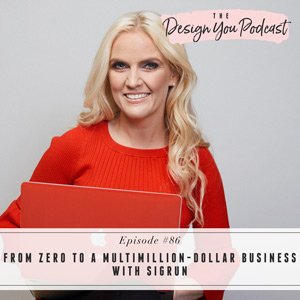
I have a great interview for you on the podcast today, friends! Sigrun is an amazing business woman whose mission is to accelerate gender equality through female entrepreneurship. She was drawn to leadership roles even as a young girl and spent many years running and growing large companies all over Europe until she decided it wasn’t her dream.
Sigrun is talking us through what she believes is the key to helping women feel empowered and have an impact on others, and ultimately go after their goals. She has grown her online business from zero to now multimillion dollars and growing evermore, and she’s generously sharing her insights on the mistakes she made early on in trying to create a scalable business.
Join us today as Sigrun shares so much of her knowledge and passion for how we female entrepreneurs can reach success and feel empowered doing so. Her message is straightforward and drama-free, so I know you’re going to love her.
If you want to keep this conversation going, you have to join my free Design You Podcast community on Facebook. We have great conversations over there about the podcast episodes and our podcast guests are in there too! So head on over and I’ll see you there!





